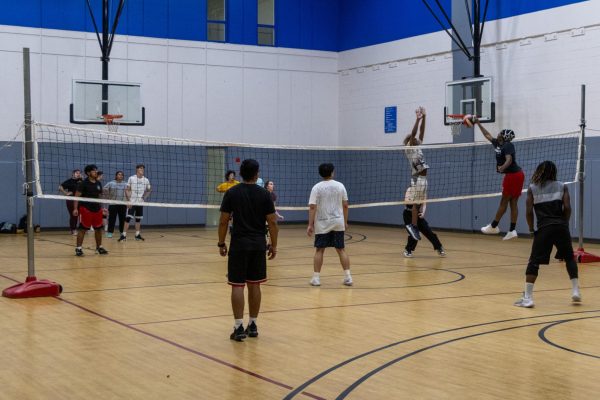Easing course registration woes
January 24, 2011
Students go through the course registration process each semester. While most get into the classes they need fairly painlessly, some aren’t as fortunate. Sometimes sections fill up too quickly and students are unable to register for required courses essential to their majors. This could prevent students from fulfilling prerequisites for other courses, which might make them fall behind in majors and delay their graduation.
For last-semester seniors, this isn’t too much of an obstacle. According to Pattie Mackenzie, assistant dean of Faculty Advising, departments must either make a seat available in a required section for a graduating senior or find an alternative course for the student to take. For underclassmen, however, there’s no clear solution.
Students can e-mail teachers to request a spot in a full section. However, that decision is ultimately up to the professor and the department. It’s possible for students who have a prior relationship with a teacher to be given preference over those unacquainted. Each situation is dealt with on a case-by-case basis, and there is no formal procedure in place to resolve such registration problems. Oftentimes students have no choice but to watch the OASIS course registration website and hope someone drops the class. Instead of putting the full burden of this task on the students, the college should take steps to make the registration process go more smoothly.
Columbia should consider requiring students across all departments to briefly meet with faculty advisers each semester before clearing them to register for courses. While this might mean more work for advisers early on, it would make resolving problems easier for everyone involved once registration begins and, ultimately, better serve the student body. Advisers could help students understand what courses they need to take that particular semester and register them for those courses during the advising session. This could help ensure students required to take a specific class get priority access.
While a waiting list system might seem like an easier solution, it wouldn’t be much better than watching and hoping for a seat to open, and there would continue to be no guarantee of registering for a required class.
However, students must also be willing to make an effort to keep such problems from arising. Circumstances out of a student’s control, such as a late registration date, transferring from another school or a financial registration hold, might prevent them from getting into a class. In these cases, advisers and professors should work with students to find a solution. On the other hand, if students don’t take an active interest in course registration and aren’t willing to take responsibility for their education, the college shouldn’t have to pick up the slack.







